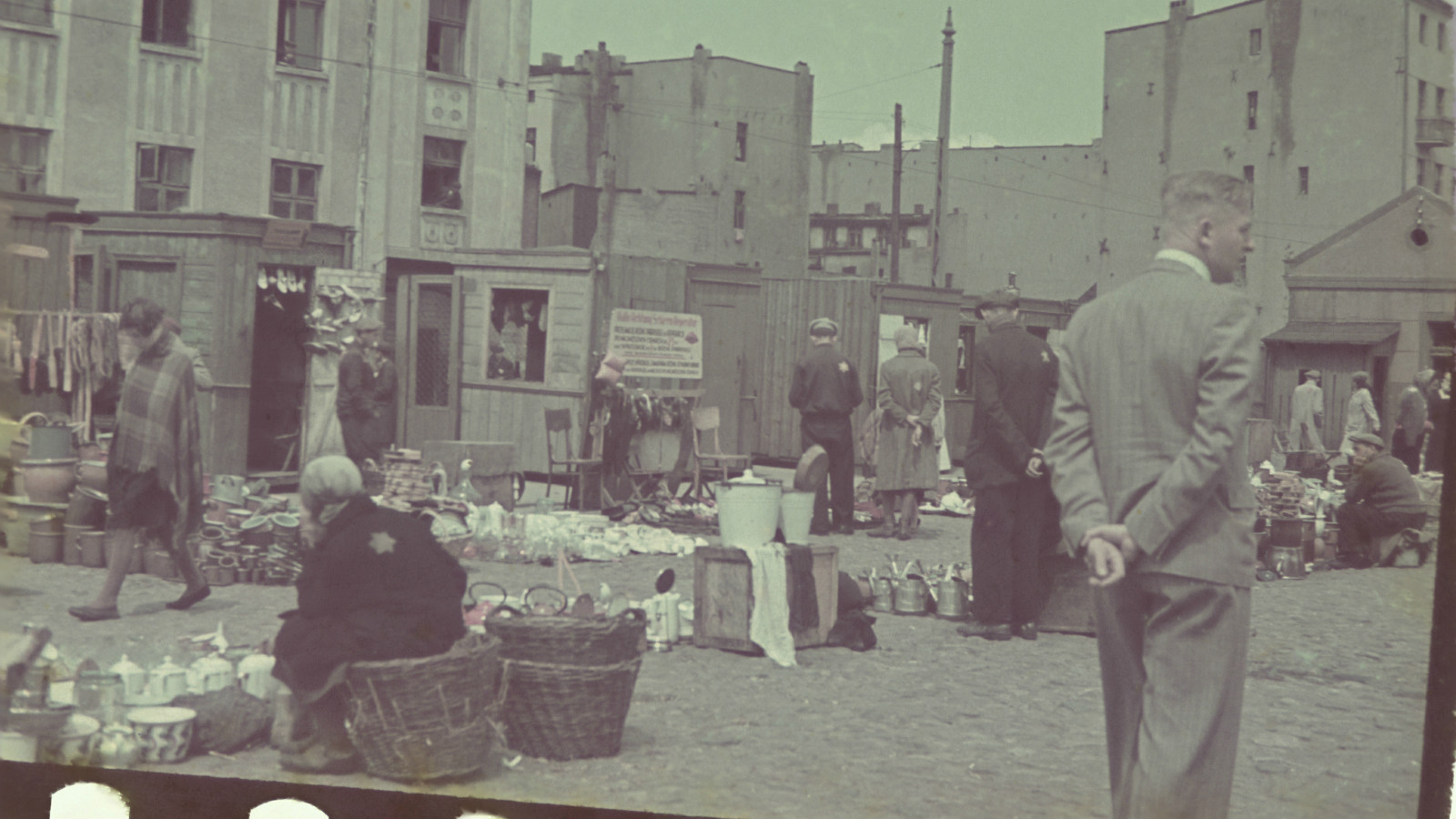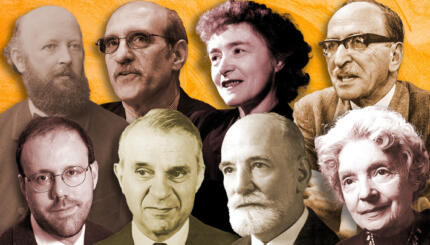In the winter of 1918-1919, on a day when the wind was blowing, I.C. Trumpelman arrived in our town. He was wearing a brown overcoat and a brown hat and had a large suitcase in either hand. The overcoat was a cheap one, woven from horsehair. “Mister,” he said in Polish to the first person he saw on the platform, “find me a hotel.” For such a large man his voice was high, with a trace of the lisp that Jews have in Vilna. Even at that time his hair was gray, almost white, and hung far over his collar. His eyes peered through the same pair of “American” spectacles—round lenses in black metal frames—that he was to wear twenty and twenty-five years later. The eyes themselves were also round, like a boy’s, and were for a Litvak’s remarkably blue.
Our main station, like many others built in the 1880’s, was designed by the Italian, Donati. it is to this day still standing, with turrets of red brick, with stone buttresses, with slanted windows through which you can see clouds and birds and the lemon-colored lozenge of the Polish sun. The man on the platform, the one Trumpelman spoke to, led him through the station arches and out into the winter light. Although he was not a railway porter, and not even a member of the working class, this Pole carried both of the Jew’s valises.
The newcomer, now standing on the steps of the Donati Station, put his hand on his hat and stared through the Central Square. There were carts there, and his wagons, and several automobiles. Toward the east, over the rooftops, steam from the dyeworks steadily rose. Women passed with their bundles. Boys chased each other in the open air. Then the Pole pointed to where, on the far side of the Rumkowsky Monument, a flag was flying over the Hotel Europa. Trumpelman, with his teeth protruding a little, smiled. Then he picked up his bags and walked down the steps, into the square. The trails of his coat, as if angry at something, lashed round this legs.
The Hotel Europa, still intact also, though now the site of a state ministry, is even larger than the main station. it was generally thought to be the equal of the the Britannia in Warsaw, and finer than the Zoppot Casino-Hotel in Gottentow-Lanz. The pastry shop on the ground floor had an international reputation. It made butter tarts, with crumb crusts that were toasted, ad those traveling east-west, Pari-Moscow, or north-south, Danzig-Budapeth, would buy them in between trains. In this hotel, in a corner room with a washstand, Isiaiah C. Trumpelman stayed for three nights and three days.
With your help, My Jewish Learning can provide endless opportunities for learning, connection and discovery.
Excerpt published with permission of Other Press.
Ready to read more? Get your copy of King of the Jews here.
Learn More About King of the Jews and the Lodz Ghetto.




